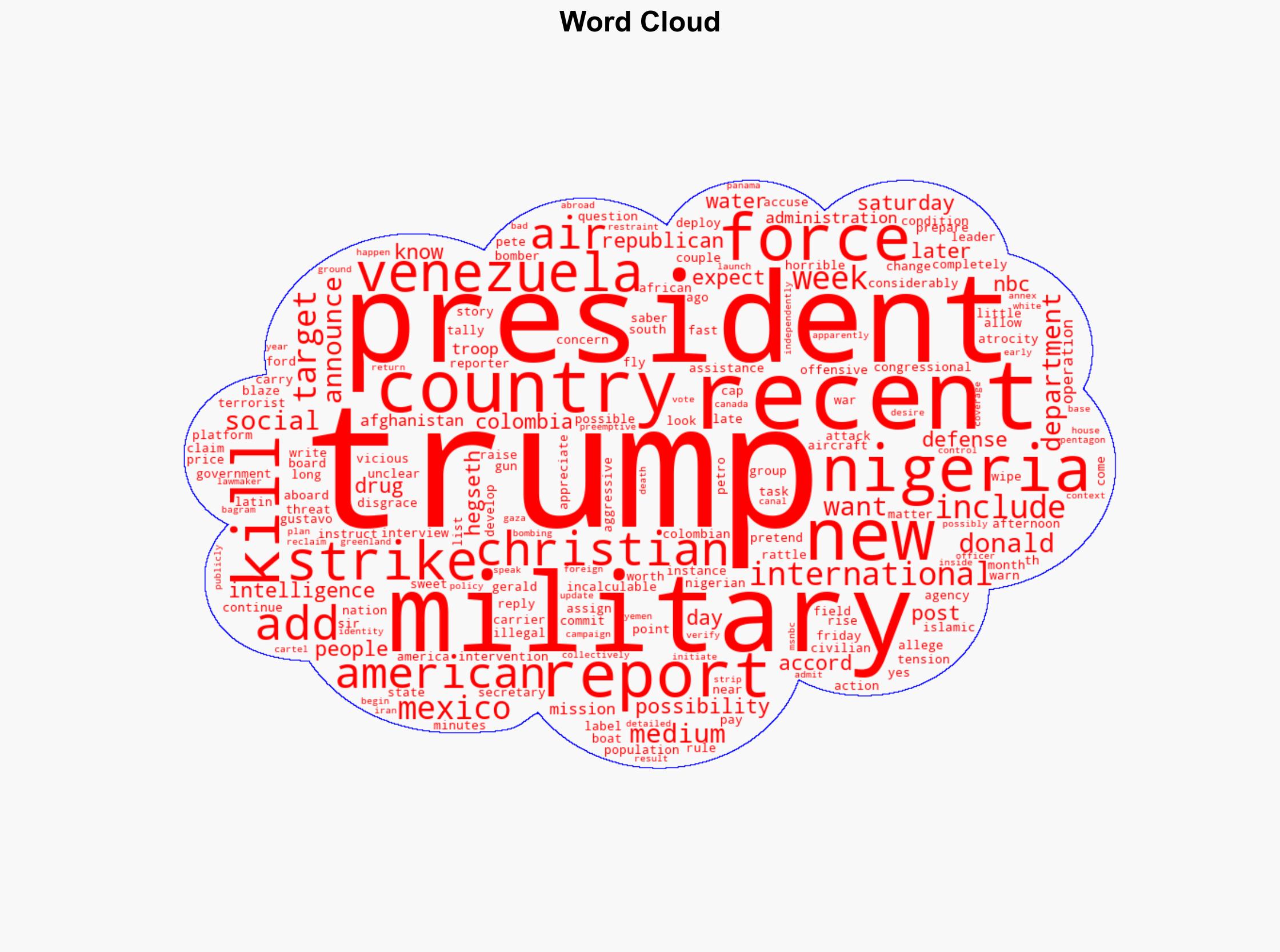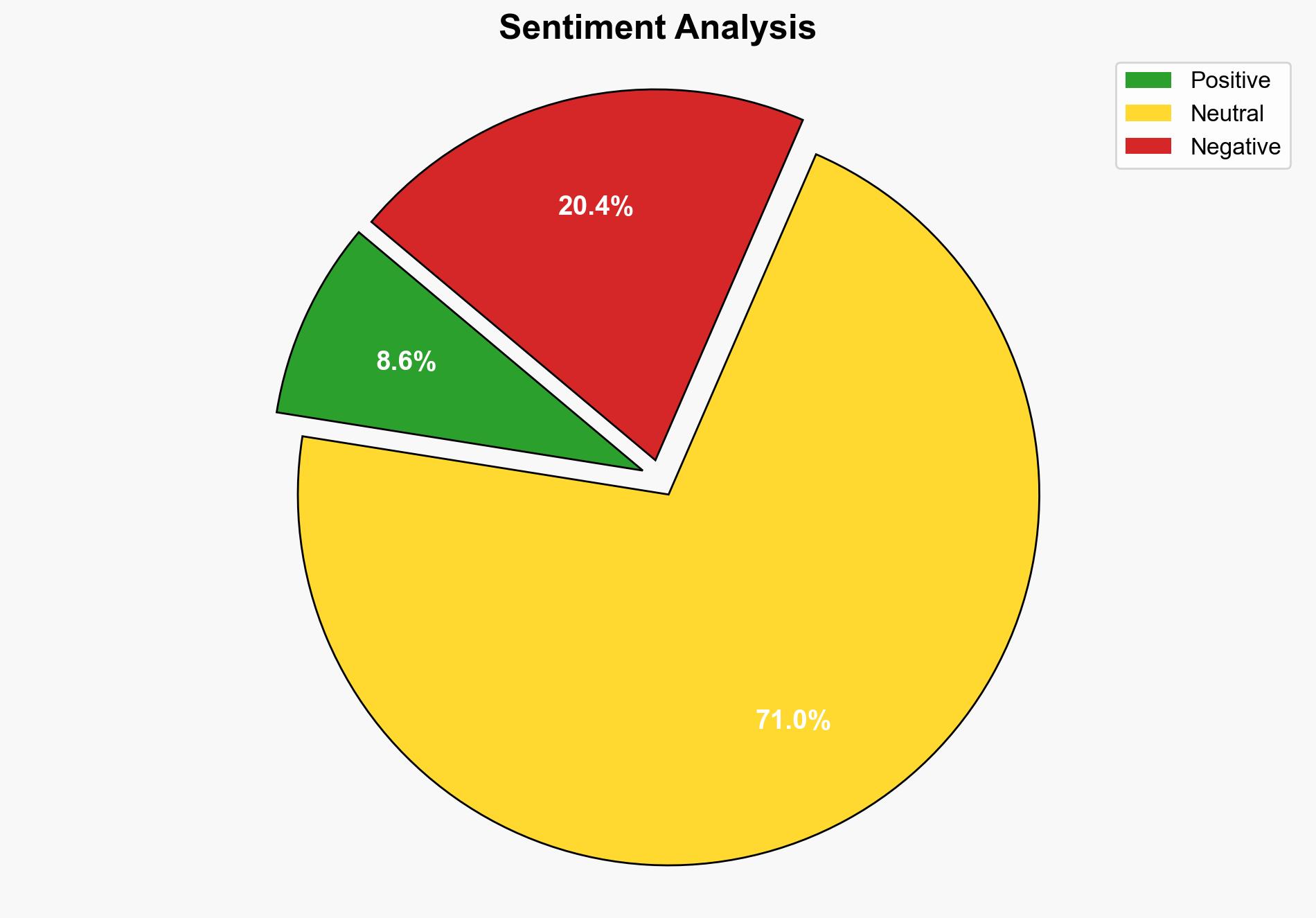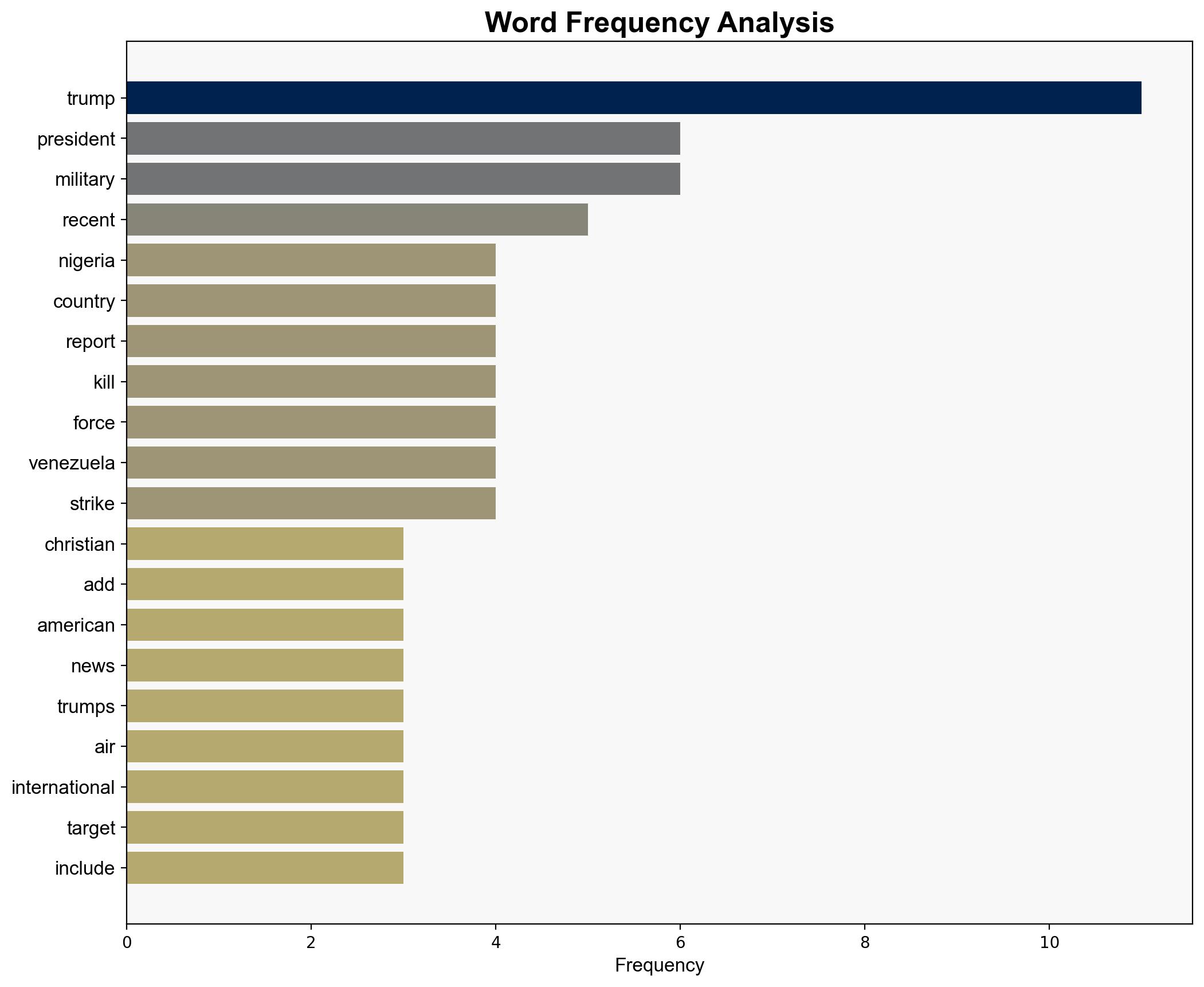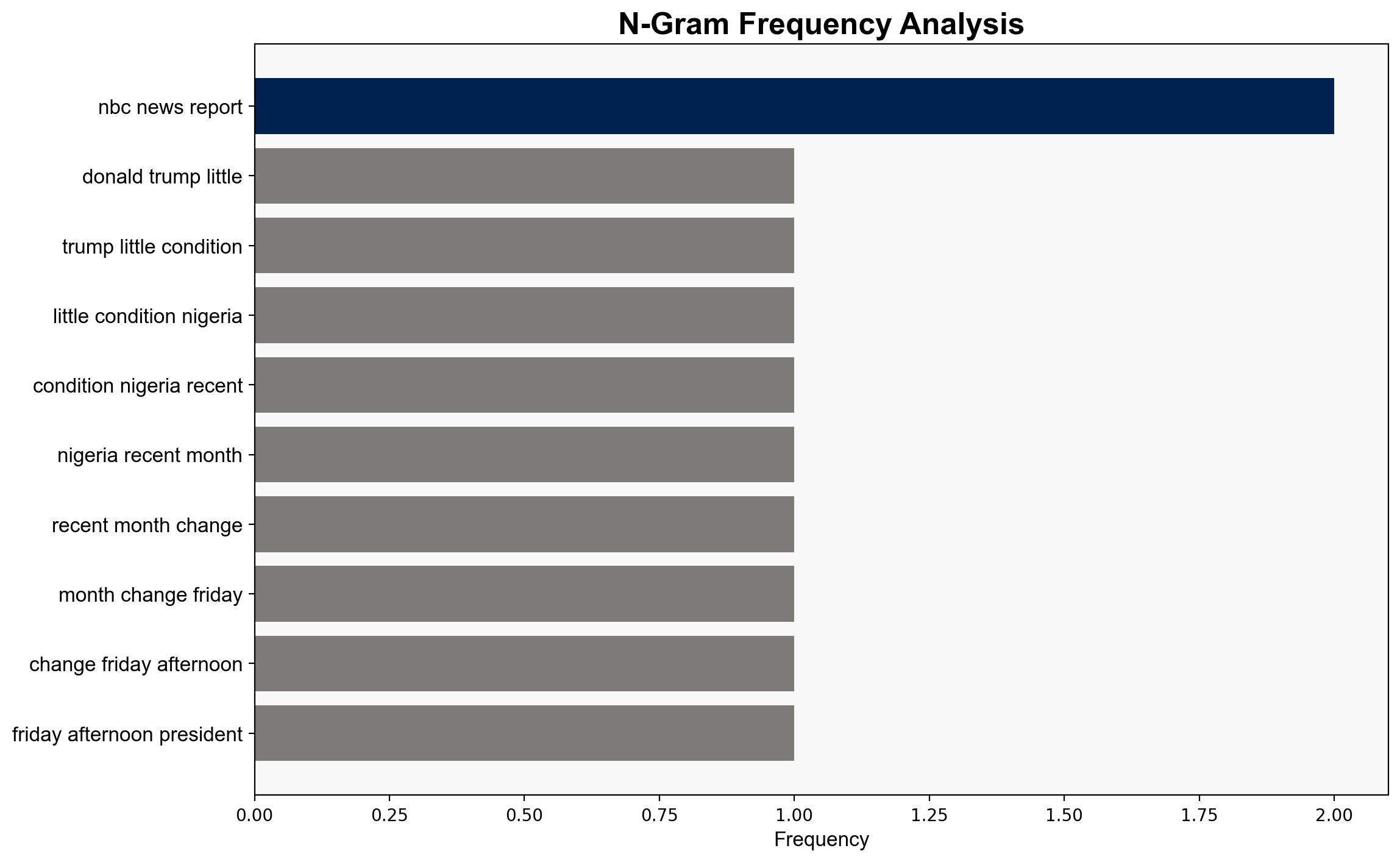Trump threatens Nigeria with a guns-a-blazing response adding to his target list – MSNBC
Published on: 2025-11-03
Intelligence Report: Trump threatens Nigeria with a guns-a-blazing response adding to his target list – MSNBC
1. BLUF (Bottom Line Up Front)
The most supported hypothesis is that the threats against Nigeria are part of a broader strategy to project power and influence globally, leveraging military rhetoric to address perceived threats to Christian populations. Confidence level: Moderate. Recommended action: Monitor developments closely, engage in diplomatic dialogue to de-escalate tensions, and prepare contingency plans for potential military actions.
2. Competing Hypotheses
1. **Hypothesis A**: The threats against Nigeria are primarily a rhetorical strategy aimed at consolidating domestic political support by appealing to specific voter bases concerned with international Christian persecution.
2. **Hypothesis B**: The threats are indicative of a genuine intention to engage militarily in Nigeria, as part of a broader strategy to counter perceived threats and assert U.S. influence in regions with significant geopolitical interests.
Using ACH 2.0, Hypothesis B is better supported due to the pattern of military posturing in other regions, such as Venezuela and Afghanistan, suggesting a consistent approach of using military threats as a tool of foreign policy.
3. Key Assumptions and Red Flags
– **Assumptions**: It is assumed that the threats are a calculated part of foreign policy rather than impulsive declarations. Another assumption is that the Nigerian government is unable or unwilling to address the alleged killings of Christians.
– **Red Flags**: The lack of clarity on whether the Department of Defense has received formal orders raises questions about the seriousness of the threats. Additionally, the absence of corroborating evidence for the alleged killings in Nigeria is a critical gap.
– **Cognitive Bias**: Confirmation bias may lead to overestimating the likelihood of military action based on past behavior without considering the unique context of Nigeria.
4. Implications and Strategic Risks
– **Geopolitical Risks**: Military action in Nigeria could destabilize the region, strain U.S. relations with African nations, and potentially provoke retaliatory actions.
– **Economic Risks**: Escalation could impact global oil markets, given Nigeria’s role as a major oil producer.
– **Cyber Risks**: Increased tensions may lead to cyber retaliation against U.S. interests.
– **Psychological Impact**: Domestic and international perceptions of U.S. foreign policy could shift, affecting alliances and partnerships.
5. Recommendations and Outlook
- Engage in diplomatic efforts to clarify U.S. intentions and reduce tensions with Nigeria.
- Prepare for potential military engagement by enhancing intelligence capabilities in the region.
- Scenario Projections:
- Best Case: Diplomatic resolution with increased cooperation on counter-terrorism.
- Worst Case: Military conflict leading to regional instability and economic disruption.
- Most Likely: Continued rhetorical posturing without immediate military action.
6. Key Individuals and Entities
– Donald Trump
– Pete Hegseth
– Nigerian Government
– Congressional Republicans
7. Thematic Tags
national security threats, geopolitical strategy, military posturing, regional focus





